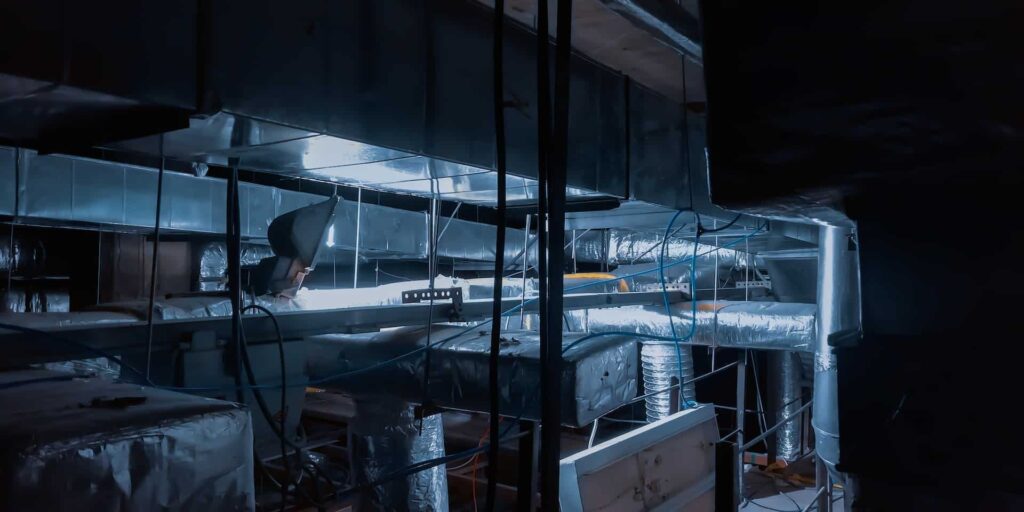Data center corrosion is a serious problem that can lead to system failures and downtime. Fortunately, there are steps that you can take to prevent corrosion from happening in the first place. This blog post will take a closer look at data center corrosion, what causes it, and how to prevent it.
What Is Data Center Corrosion?
Corrosion is the deterioration of metal due to a chemical reaction with its environment. When metal corrodes, it oxidizes and loses its strength. This process can be accelerated by factors like humidity, salt air, and high temperatures.
Data center corrosion is a type of corrosion that specifically affects data centers. Because data centers contain a large amount of sensitive electronic equipment, any downtime can be extremely costly. As such, it’s crucial to take measures to prevent data center corrosion before it happens.
Causes of Data Center Corrosion
Several factors can contribute to data center corrosion. The most common include:
- Humidity: High humidity levels can cause condensation on metal surfaces, accelerating the corrosion process.
- Salt Air: If your data center is located near the ocean, salt air can also accelerate corrosion.
- High Temperatures: High temperatures can cause metals to expand and contract, which can lead to cracks and fissures in the metal surface. These cracks and fissures provide an entry point for corrosive elements.
Related Link: Server Room Cleaning Practices: Best Guide
Effects of Corrosion on Data Centers
Data center corrosion is a severe problem that can lead to several deleterious effects on data center infrastructure, including:
- Equipment failures: Corrosion can cause components to fail prematurely, leading to unexpected downtime and costly repairs.
- Safety hazards: In some cases, corrosion can create safety hazards for personnel working in the data center.
- Decreased efficiency: Corroded components can lead to decreased efficiency and increased energy consumption.
- Loss of data: In extreme cases, data loss can occur if corroded storage media is no longer able to be read.
However, by taking measures to control humidity levels and using corrosion-resistant materials, data center owners and managers can effectively prevent this problem from occurring.
How to Prevent Corrosion in Data Centers
Fortunately, there are several steps that data center owners and managers can take to prevent corrosion from happening. These include the following:
- Use Corrosion-Resistant Materials: When building or retrofitting a data center, use materials resistant to corrosion, like stainless steel or aluminum.
- Control Humidity Levels: Maintain humidity levels within the ASHRAE standards (between 30% and 50%). This can be done using a dehumidifier or by controlling the temperature in your data center.
- Monitor Metal Surfaces: Regularly inspect metal surfaces for signs of corrosion like discoloration or pitting. If you notice any signs of corrosion, take action immediately to prevent further damage.
The Benefits of Preventing and Controlling Corrosion in Data Centers
There are many benefits to controlling corrosion in data centers:
Increased Reliability
When corrosion is controlled, equipment is less likely to fail. This increases the reliability of the data center and reduces downtime.
Improved Safety
Corroded equipment can pose a safety hazard. By controlling corrosion, you can help keep your data center safe for employees and visitors.
Lower Costs
Corrosion control can save you money by extending the life of your equipment and reducing repair costs.
Better Performance
When equipment is well-maintained, it performs better. Controlling corrosion helps ensure that your data center runs at peak efficiency.
Related Link: Data Center Cleaning Best Practices
Data Center That Successfully Controlled Corrosion
Facebook Data Center in North Carolina
In 2010, Facebook built a data center in North Carolina that was designed to be highly energy efficient. The data center used an innovative cooling system that used outside air to cool the servers. However, the system also caused the data center’s humidity levels to rise, leading to corrosion problems.
To solve this problem, Facebook installed a corrosion control system that monitors the humidity levels and adjusts the cooling system accordingly. The system has been successful in preventing corrosion and has helped Facebook save millions of dollars in energy costs.
Have questions about data centers? Let’s get in touch!
The Future of Data Center Corrosion Prevention and Control
The future of data center corrosion prevention and control is here. With the advent of new technologies, data center owners now have a variety of options to choose from when it comes to preventing and controlling corrosion.
Anodizing
One of the most promising new technologies for data center corrosion prevention and control is anodizing. Anodizing is a process in which a metal is coated with a layer of oxide. This oxide layer acts as a barrier to corrosion and can significantly extend the life of metal components exposed to corrosive environments. Anodizing is already being used in various industries and is now gaining traction in the data center industry.
Parylene Coating
Another promising new technology for corrosion prevention and control is parylene coating. Parylene is a polymer that can be applied to metal surfaces to form an impermeable barrier. This barrier prevents corrosive substances from coming into contact with the metal surface and can significantly extend the life of metal components exposed to corrosive environments. Parylene coating is already being used in a variety of industries and is now beginning to gain traction in the data center industry.
Are you interested in learning more about data centers? Visit C&C Technology for additional information!
Controlling Data Center Corrosion
Data center corrosion can have a significant impact on the lifespan and performance of your equipment. By understanding the causes and prevention methods, you can take steps to protect your data center investment. For more information on data centers, please check out C&C. We are here to help you make the best decisions for your business, so don’t hesitate to reach out with any questions.
Last Updated on January 20, 2023 by Josh Mahan




